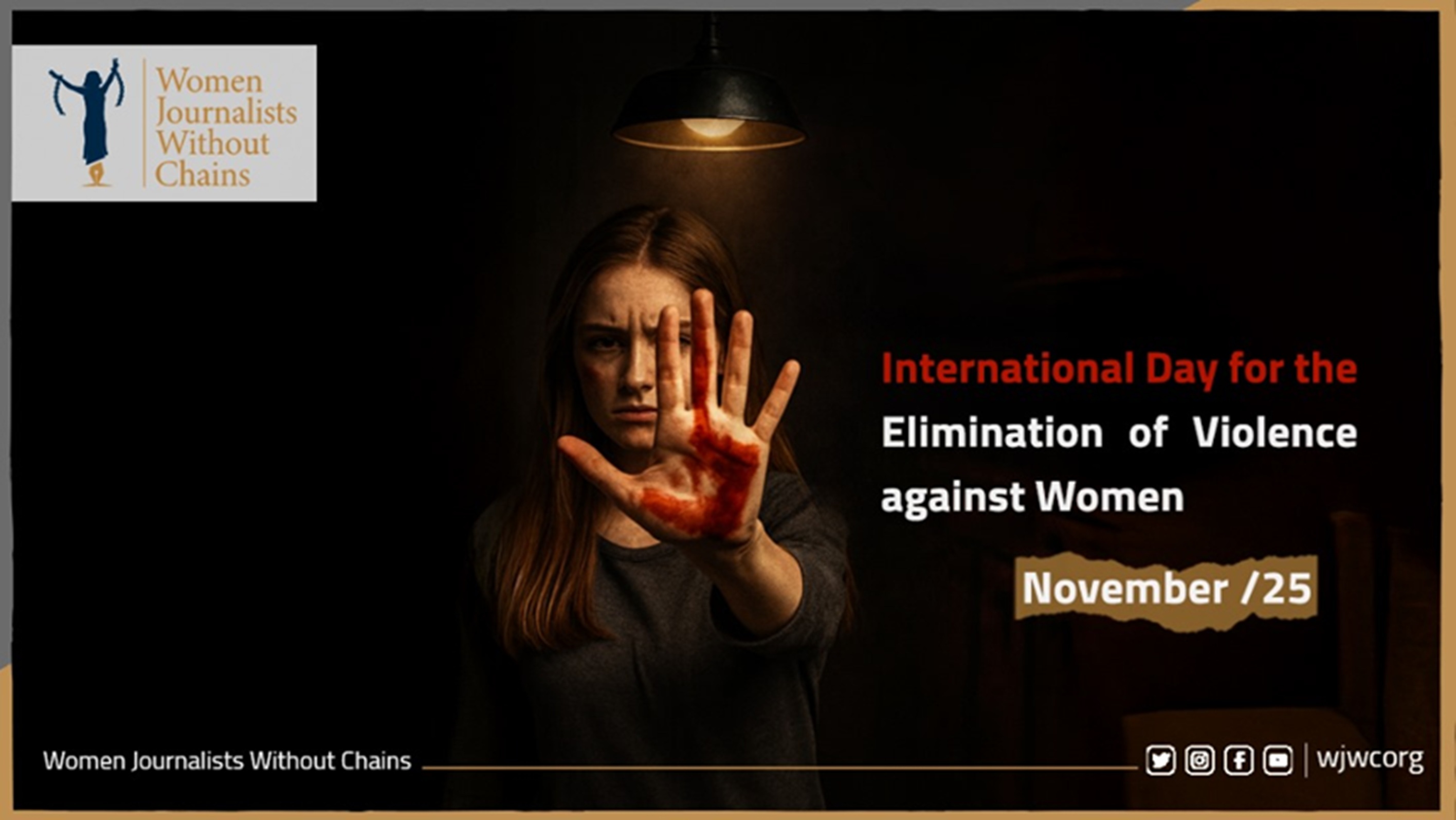Wjwc News

Statement on the International Day to End Violence Against Women
On the International Day for the Elimination of Violence Against Women, Women Journalists Without Chains pays tribute to women across the globe.
Designated by the United Nations on 25 November, this day stands as a universal reminder that women continue to endure some of the most severe forms of abuse and discrimination. Protecting women is not only a moral imperative—it is a binding legal duty that rests upon states, societies, and institutions alike.
Despite decades since the adoption of international instruments such as CEDAW and the UN Declaration on the Elimination of Violence Against Women, progress remains painfully slow. Women continue to endure violence in multiple forms: domestic and community abuse, exclusion from decision‑making, legal discrimination, and increasingly, digital violence—now one of the most dangerous arenas of harm in the modern world.
Violence against women is not an isolated incident or aberrant behavior; it is a deeply entrenched phenomenon rooted in cultural, social, and legal structures. Addressing it requires robust legislation with genuine deterrent power, effective protection policies, educational curricula that instill equality and human rights from the earliest years, and responsible media discourse that dismantles stereotypes rather than perpetuating them. Economic and political empowerment is equally essential: women with access to education, employment, and political representation are less vulnerable to abuse and more capable of reporting violations and seeking protection.
Violence in Conflict Zones
The organization highlights the most severe forms of violence in conflict settings, where legal protections collapse and women become primary victims.
- Palestine (Gaza and the West Bank): Women have suffered grave violations including direct killings, arbitrary detention, torture, displacement, and severe psychological and physical harm caused by war. Reports, including those documented by Women Journalists Without Chains, show unprecedented increases in the killing of women and injuries to mothers and children as a result of indiscriminate bombardment and the breakdown of protection systems and health services.
- Sudan: Women face widespread sexual violence and exploitation in camps and displacement areas amid near‑total collapse of justice ins
